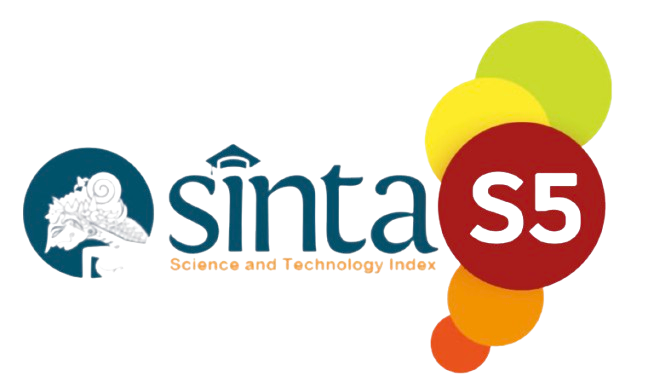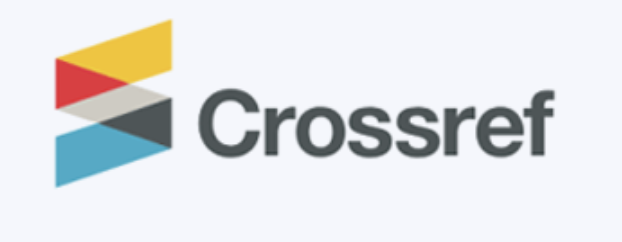The Relationship between University Support and Students’ Digital Competence
DOI:
https://doi.org/10.52217/ijlhe.v7i2.1614Keywords:
digital era, digital literacy, higher education, quality educationAbstract
The advancement of technology in the 5.0 era necessitates that students develop strong digital literacy skills. This study examines the relationship between university support and students' digital literacy levels. Utilizing a quantitative research approach, data were collected from 99 respondents through two structured questionnaires: one measuring digital literacy and the other assessing university support. The data were analyzed using descriptive and correlational techniques with SPSS software. The findings reveal a significant positive correlation between university support and students' digital literacy. These results highlight that enhanced university support is associated with improved digital literacy skills among students. This study underscores the critical role of universities in delivering quality educational services that foster students' digital competence
References
Ahmed, S. & Roche, T. (2022). Digital Literacy and Academic Staff in an English Medium Instruction University: A Case Study. International Journal of Computer-Assisted Language Learning and Teaching (IJCALLT), 12(1), 1-20. https://doi.org/10.4018/IJCALLT.301197
Dennen, V., He, D., Shi, H., & Adolfson, D. (2023). College Students, Networked Knowledge Activities, and Digital Competence. Online Learning. https://doi.org/10.24059/olj.v27i4.4046.
Gutiérrez-Ángel, N., Sánchez-García, J., Mercader-Rubio, I., García-Martín, J., & Brito-Costa, S. (2022). Digital literacy in the university setting: A literature review of empirical studies between 2010 and 2021. Frontiers in Psychology, 13. https://doi.org/10.3389/fpsyg.2022.896800.
Harmoko, D. D. (2021). Digital Literacy As A Solution To Improve The Quality Of Indonesia’s Human Resources. Research and Development Journal of Education, 7(2), 413. https://doi.org/10.30998/rdje.v7i2.10569
Hastomo, T., & Septiyana, L. (2022). The investigation of students’ engagement in online class during pandemic COVID-19. Jurnal Penelitian Ilmu Pendidikan, 15(2). https://doi.org/10.21831/JPIPFIP.V15I2.49512
Istiara, F., & Hastomo, T. (2023). Exploring lecturers and administrative staffs’ strategies to hone EFL students’ digital literacy. JOALL (Journal of Applied Linguistics and Literature), 8(1), 151–172. https://doi.org/10.33369/JOALL.V8I1.25568
Jang, N. (2023). Exploring Factors Influencing College Students' Digital Literacy. The Korean Association of General Education. https://doi.org/10.46392/kjge.2023.17.5.93.
Jones, R., & Hafner, C. (2012). Understanding Digital Literacies: A Practical Introduction. In Understanding Digital Literacies: A Practical Introduction. https://doi.org/10.4324/9780203095317
Kayaduman, H., Battal, A., & Polat, H. (2022). The relationship between undergraduate students’ digital literacy and self-regulation in online interaction. Innovations in Education and Teaching International, 60, 894 - 905. https://doi.org/10.1080/14703297.2022.2113113.
Nalaila, S., Wawire, V., & Gathara, P. (2022). Classroom support for students’ digital literacy skills for learning in Tanzania’s public universities. Development in Practice, 32, 867 - 878. https://doi.org/10.1080/09614524.2022.2104219.
Nugroho, C., & Nasionalita, K. (2020). Digital Literacy Index of Teenagers in Indonesia. Journal Pekommas, 5(2), 215. https://doi.org/10.30818/jpkm.2020.2050210
Oktarin, I. B., & Hastomo, T. (2024). Utilizing Critical Discourse Analysis on Developing Students’ Digital Literacy Skills: An Action Research. Premise: Journal of English Education, 13(1), 90. https://doi.org/10.24127/pj.v13i1.8758
Prasad, N. V., Balraj, S., Pandian, A., & Nordin, M. Z. (2016). Literacy, Skills and Perception of Young Children on Media Matters. Researchers World, 7(1), 62
Rinekso, A. B., Rodliyah, R. S., & Pertiwi, I. (2021). Digital literacy practices in tertiary education: A case of EFL postgraduate students. Studies in English Language and Education, 8(2), 622–641. https://doi.org/10.24815/siele.v8i2.18863
Rosalina, D., Yuliari, K., Setianingsih, D., & Zati, M. R. (2021). Faktor – Faktor Yang Berpengaruh Terhadap Kompetensi Literasi Digital Mahasiswa di Era Revolusi Industri 4.0. EKONIKA Jurnal Ekonomi Universitas Kadiri, 6(2), 294. https://doi.org/10.30737/ekonika.v6i2.1996
Sánchez-Caballé, A., Gisbert-Cervera, M., & Esteve-Mon, F. M. (2020). The digital competence of university students: a systematic literature review. https://api.semanticscholar.org/CorpusID:219463448
Sumadi, S. W., Wahyuni, S., Program, S. /, Program, P. /, Doktoral, S. P., Negeri Makassar, U., Nurhayati, ), Program, B. /, Pendidikan Biologi, P. /, & Makassar, U. N. (n.d.). Inovasi Sains dan Pembelajarannya: Tantangan dan Peluang Makassar (Vol. 23).
Sutiyono, A., Hastomo, T., & Tanod, M. J. (2022). Educators’ perception towards early childhood education in technology integration: A case study. Jurnal Obsesi : Jurnal Pendidikan Anak Usia Dini, 6(6), 7323–7333. https://doi.org/10.31004/obsesi.v6i6.3837
Umut Zan, B., Çolaklar, H., Altay, A., & Taşkın, N. (2020). A Study on Digital Literacy Skills of Faculty of Letters Students: Use of University Library. International Journal of Emerging Technologies in Learning, 16(1), 152–171. https://doi.org/10.3991/IJET.V16I01.16567
Weber, H., Hillmert, S., & Rott, K. (2018). Can digital information literacy among undergraduates be improved? Evidence from an experimental study. Teaching in Higher Education, 23, 909 - 926. https://doi.org/10.1080/13562517.2018.1449740.
Yoleri, S., & Nur Anadolu, Z. (2022). Examination Of Digital Literacy Skills Of Undergraduate Students According To Various Variables. Advanced Education, 121–134. https://doi.org/10.20535/2410-8286.262190.
Zhang, J., & Zhang, Z. (2024). AI in teacher education: Unlocking new dimensions in teaching support, inclusive learning, and digital literacy. Journal of Computer Assisted Learning, 40(4), 1871–1885. https://doi.org/10.1111/jcal.12988














